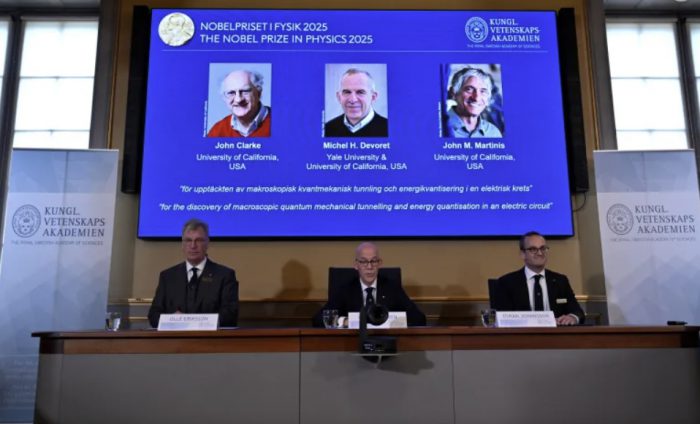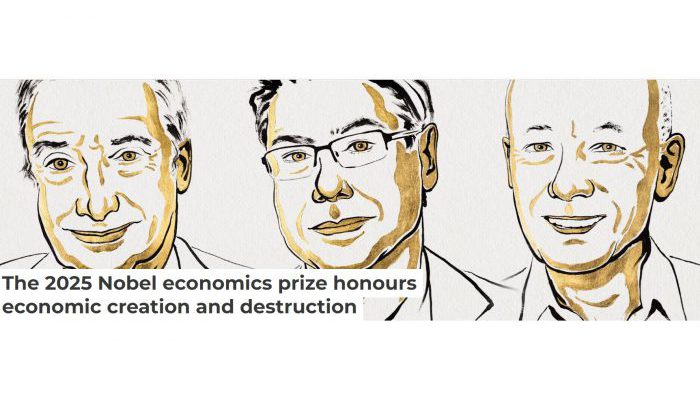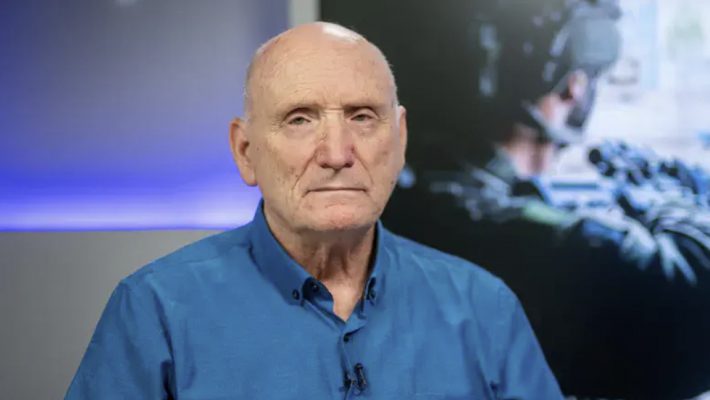John Clarke, Michel H. Devoret, and John M. Martinis win the 2025 Nobel Prize in Physics for pioneering quantum tunnelling research that powers next-generation computing.
In a monumental recognition of cutting-edge science, the Royal Swedish Academy of Sciences has awarded the 2025 Nobel Prize in Physics to three U.S.-based physicists — John Clarke, Michel H. Devoret, and John M. Martinis — for their revolutionary work on macroscopic quantum mechanical tunnelling and energy quantisation in electric circuits.
Announced Tuesday in Stockholm, the Nobel Committee hailed their discovery as a breakthrough that “brought quantum mechanics out of the microscopic world and into the realm of human-scale engineering.” The trio’s work, it said, “opened the gateway to the next generation of quantum technology — from quantum computers to ultra-secure communication and advanced sensors.”
Their experiments, which demonstrated that quantum properties can manifest in large-scale electrical systems, have paved the way for practical applications once considered science fiction.
John Clarke, a British-born professor at the University of California, reflected on the achievement with humility:
“Our discovery, in some ways, is the basis of quantum computing,” he said. “Exactly where this fits into the larger picture is still unfolding — but the possibilities are immense.”
Quantum computing, which uses the bizarre rules of quantum mechanics—where particles can exist in multiple states at once—promises to outperform traditional computers by astronomical factors, with implications ranging from cybersecurity and artificial intelligence to medicine and finance.
The 2025 Physics laureates join a lineage of scientific giants stretching back to Einstein, Feynman, and Bohr, continuing the tradition of Nobel-awarded discoveries that redefine humanity’s understanding of nature.
The award will be formally presented in Stockholm this December, alongside other Nobel categories including chemistry, medicine, literature, peace, and economics.
Israel’s scientific community, long a leader in quantum research, also celebrated the announcement. The Hebrew University’s Quantum Information Center called the discovery “a leap that echoes across laboratories worldwide,” emphasizing how global collaboration — including Israeli contributions — is accelerating the dawn of quantum technology.
As the world stands on the brink of a quantum revolution, this year’s Nobel recognition reminds us that the boundary between the theoretical and the tangible has once again been shattered — one electron at a time.





